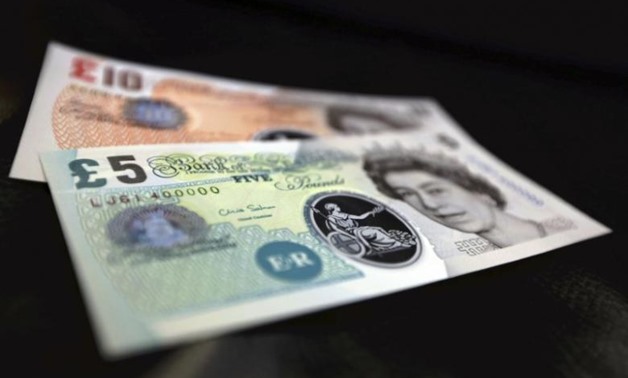
Sample polymer five and ten GB pound banknotes are seen on display at the Bank of England - REUTERS/Chris Ratcliffe/pool
LONDON - 20 June 2017: Sterling fell by almost a full cent against the dollar on Tuesday after Bank of England Governor Mark Carney said now was not the time to raise interest rates, dashing some investors' expectations the central bank had shifted in that direction.
The pound got a slight boost last week after two more policymakers on the Bank of England's eight-strong rate-setting committee joined outgoing Kristin Forbes in voting for a rate rise.
But in a speech to London's banking community alongside finance minister Philip Hammond, Carney cited weak wage growth and mixed signals on consumer spending and business investment as reasons for not moving to raise interest rates at the moment.
Sterling sank to a one-week low of $1.2669 from $1.2758 after the text of Carney's Mansion House speech was released. It was last trading at $1.2691.
It also fell over half a percent to a five-day low of 88.04 pence per euro.
Ten-year yields on British government bonds fell below 1 percent after the text was released and last stood at 1.001 percent down 3 basis points on the day.
Short sterling interest rate futures also rose strongly, especially for the late 2018 and early 2019 contracts, as the market priced in a shallower path of interest rate hikes in future years.
The FTSE 100 stocks index, whose externally-focused companies often benefits from a weaker pound, was up 0.24 percent, slightly outperforming the pan-European STOXX 600 index . Consumer stocks were among the top FTSE gainers, helped by the prospect of lower interest rates for longer.
"Carney doesn't want to be seen as reacting too quickly (to Brexit) - he's also fully aware the UK hasn't left the EU yet and he wants to keep his monetary policy loose on the off chance that the UK doesn't get an amazing deal," said David Madden, markets analyst at CMC Markets.
Sterling investors also kept a wary eye on politics, with the dual uncertainty of having no government at home 12 days after a parliamentary election and talks, which began on Monday, on Britain's exit from the European Union adding to pressure on the pound.
Prime Minister Theresa May is still in talks with Northern Ireland's Democratic Unionist Party (DUP) to form a government after her gamble on a snap election backfired, eroding her majority in parliament.
Sterling sank nearly 3 percent after the election produced a parliament with no clear majority for any party and disappointed investors who had earlier bet on a landslide victory for May.
Data released by the Commodity Futures Trading Commission on Friday showed speculators took bets against the pound to the highest since early May in the week up to last Tuesday, the first reading of positioning since the election result.
"The politics have the potential for a fair amount of volatility for sterling over the next few weeks and next few months in terms of the deals that are likely to be done," said Rabobank currency strategist Jane Foley.

Comments
Leave a Comment